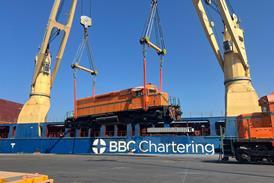The logistics industry forecasts that emerging markets will grow at a healthy rate of 5 percent in 2019 but many executives are bracing for a crisis, according to Agility’s emerging market index.

In Agility’s annual index, compiled in cooperation with Transport Intelligence (Ti), 47.1 percent of logistics executives surveyed said an emerging markets crisis is ‘likely’ or ‘highly likely’, as US-China trade tensions continue amid interest rate and currency volatility, as well as Brexit uncertainty.
“Companies looking for opportunity are finding it in emerging markets, where small and medium-sized enterprises with access to technology and mobile banking are increasingly driving growth,” said Essa Al-Saleh, ceo of Agility Global Integrated Logistics. “At the same time, logistics professionals worry that these markets are vulnerable to ripple effects from big geopolitical setbacks.”
He added that, while these concerns are valid, emerging markets are growing at roughly twice the rate of developed economies. “What’s most heartening is that many now appear resilient enough to avoid the sort of contagion we saw spreading among emerging markets in 2013 and 2008,” said Al-Saleh.
The index ranks 50 countries by factors that make them attractive to logistics providers, freight forwarders, shipping lines, air cargo carriers and distributors.
China topped the rankings for both domestic and international logistics, followed by India in each category. The UAE, Malaysia and Qatar, meanwhile, were the top three countries in terms of business fundamentals, which include regulatory environment, anti-corruption safeguards, price stability and market access.
The strongest clusters of emerging markets are in the Middle East Gulf and Southeast Asia, said Agility, which attributed this to business-friendly conditions and core strengths – the Gulf’s energy wealth and Southeast Asian manufacturing power – attracting logistics activity.
John Manners-Bell, chief executive of Ti, concluded: “This year’s index highlights the range of challenges and opportunities many markets face. The uncertainty which surrounds trading relationships, combined with implementation of new trade barriers, threatens to derail integration of emerging markets with the rest of the world.
“It is essential that obstructive trade policy does not stand in the way of commercial opportunities which help drive growth in emerging markets.”
www.agility.com
www.ti-insight.com
















